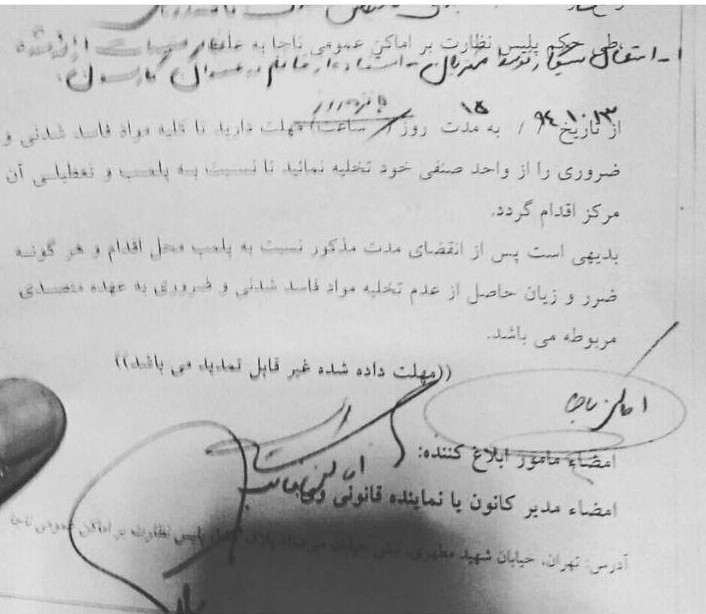Iran- Human Rights (Women, Minorities, Ethnics)
11 Prisoners Executed in Central and Northern Iran
Iran HR
Iran Human Rights (JAN 14 2016): Iran state run media, Ashkezar News, reports on the execution of one prisoner on the morning of Thursday January 14 at Yazd’s central prison (central Iran). According to the report, the prisoner, identified as “A.B.”, was a Wahhabi.
According to the Kurdistan Human Rights Network, six prisoners were hanged at Orumiyeh’s central prison (northern Iran) on murder charges. The executions were reportedly carried out on Wednesday January 13. On Tuesday the prisoners had been transferred from their cells to solitary confinement in preparation for their executions. The prisoners have been identified as Aref Shahindeji, Hossein Ezzataleb, Rahman Ranjbar, Alireza Akbari, Arsalan Badyaneh, and Abdul Wahab Hatami.
Rouhani has gradually lost most of his reformist supporters in Iran, who have suffered increasing repression and worsening economic conditions during his tenure. These developments have proven the accuracy of analyses from sources like the National Council of Resistance of Iran (NCRI), which insisted from the start that moderation was not a realistic prospect under the existing theocratic regime.
Iran- Terrorism Activities (Middle-East)
Iran top general: we’ve trained 200,000 fighters in Iraq, Syria and Yemen
Al Arabiya
The Iranian Revolutionary Guards Commander, Mohammad Ali Jafari, acknowledged training thousands of those whom he called the armed revolutionary generation in the countries of the region, according to what was quoted by the Fars news agency. Jafari said at the funeral of Hamid Reza Asadullah, a leader in the Revolutionary Guards who was killed in Syria, that the positive outcome of the developments and events in the region is the training of about two hundred thousand armed young troops in the region’s countries.
Iran- Nuclear Activities
Reaching out to Tehran in 2016 would be for the worse
OIAC – The Hill
As we enter into 2016, some members of the foreign policy community are looking forward to a year of new relations with the Islamic Republic of Iran. The nuclear agreement or so-called Joint Comprehensive Plan of Action (JCPOA), finalized in Vienna on July 14, has reportedly cleared its main hurdles on the way toward being implemented by Iran, the US, the UK, France, Germany, Russia, and China.
There is now a steady push for foreign investment in Iran, culminating in state visits between the regime and major European powers. January will see the most significant of these to date, when Iranian President Hassan Rouhani visits France and Italy, in large part to finalize trade deals.










